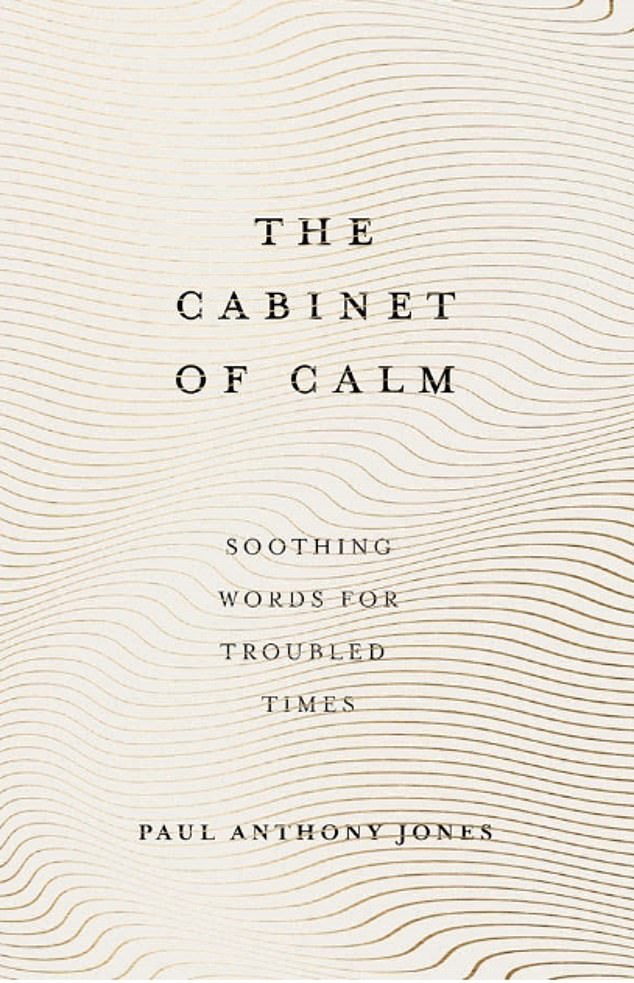Words to wash away your worries: Paul Anthony Jones uses ‘linguistic remedies’ to offer reassurance and hope in the face of all the ghastly feelings that enshroud us day after day
The Cabinet Of Calm
by Paul Anthony Jones (Elliott & Thompson £12.99, 224pp)
How’s your mental health today? Mine’s a little like my hair: wildly out of control and badly in need of professional help.
There could be no better time for the publication of a book with the title The Cabinet Of Calm, with an even softer-voiced subtitle, Soothing Words For Troubled Times.
Paul Anthony Jones is a language blogger who has been tweeting obscure words since 2013 and has 75,000 people following him online, including J.K. Rowling, Richard Osman from TV quiz show Pointless and the peerless Susie Dent from Countdown.
His aim with this magical little book is quite clear: he seeks to cheer us up and calm us down with words — or what he calls ‘linguistic remedies’ — to offer reassurance, inspiration and hope in the face of all the ghastly feelings that enshroud us day after day. He believes language can do this. I believe he’s right.
Jones has 51 such words, and each of them is designed to counteract an unpleasant circumstance or negative feeling. The very first, for example, is Aganippe, for when you’re lacking inspiration.
The Cabinet Of Calm by Paul Anthony Jones (Elliott & Thompson £12.99, 224pp)
I myself haven’t been lacking inspiration to eat pizzas and drink wine by the bucketload, but work has been more of a problem recently. Jones notes that the word ‘inspiration’ has the same root as ‘respiration’ and ‘perspiration’, from the Latin word meaning ‘to breathe’, so to be inspired is to breathe life into the task at hand. What you need, he says, is an Aganippe (pronounced to rhyme with Mississippi), a source of literary, poetic or artistic inspiration.
‘Consider the Aganippe as a reminder that it always helps to turn to something that inspires you to help see your project through, no matter what shape or form that inspiration might take.’
It could be a favourite book or piece of music. You could go for a walk or, in my case, have a long, lingering, creative bath. When I have dried my toes, the next two sentences are complete in my head and off I go again. So Jones isn’t actually trying to solve your problems — he’s trying to distract you from them with words, cheering ideas and a nice, easy storytelling style. This isn’t necessarily a book you read from cover to cover.
At the end of Aganippe it says: ‘See also autoschediasm, mooreeffoc, psaphonise’. What’s mooreeffoc when it’s at home?
For one thing, it’s ‘coffeeroom’ backwards, and it’s a word invented by Charles Dickens, who had seen it as a child on a sign on the glass door of a coffee room. And it means the art of looking at familiar things with new eyes, as Dickens used to do throughout his life.
Isn’t that delightful? There are many such riches in this book, and I’m not sure we have ever needed them more.
